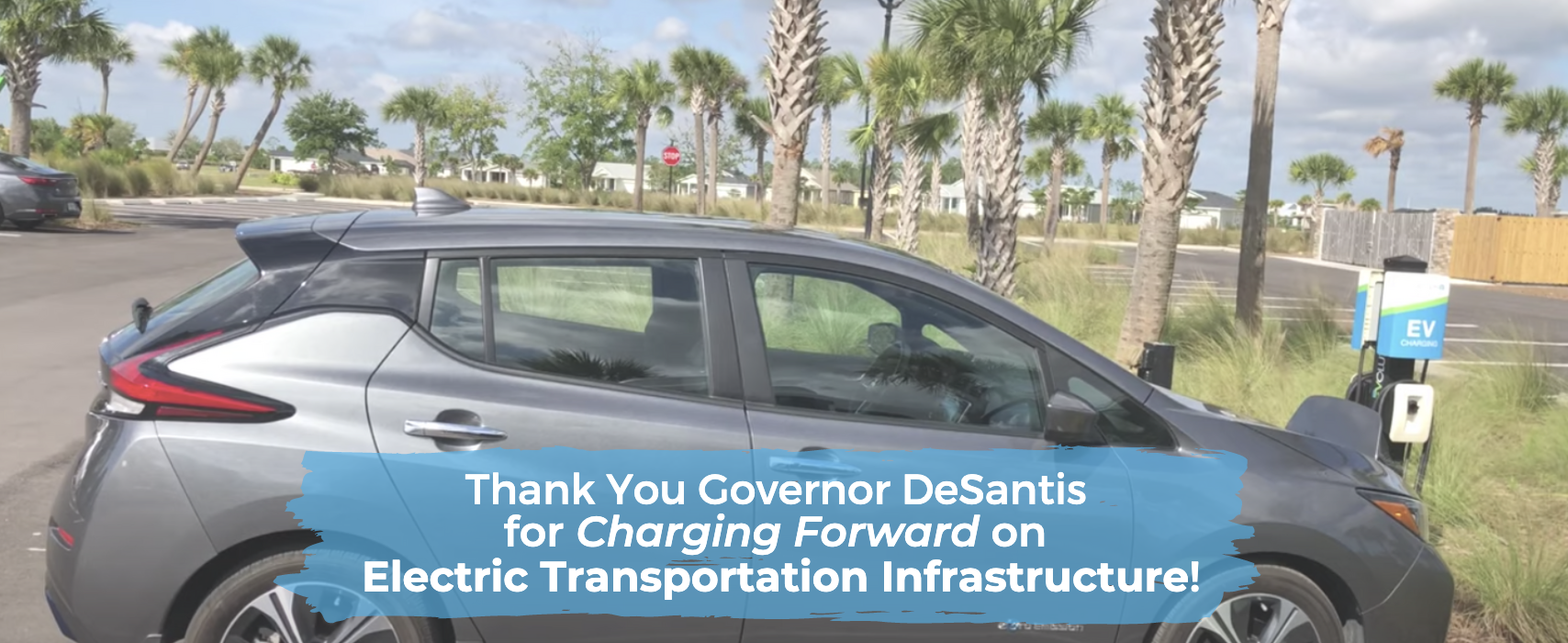This past week Florida Governor DeSantis signed the Essential State Infrastructure Bill into law. This landmark EV Roadmap legislation will create a master plan for DC fast-charging infrastructure along the interstate corridor system. The new law tasks specified state agencies to identify barriers and opportunities to advance electric vehicle (EV) adoption including legislative and policy recommendations, and requires an interim report at the end of 2020 and a final report by July 2021.
Dory Larsen | June 10, 2020 | Clean Transportation, Electric Vehicles, FloridaThis past week Florida Governor DeSantis signed the Essential State Infrastructure Bill into law. This landmark EV Roadmap legislation will create a master plan for DC fast-charging infrastructure along with Florida’s interstate corridor system. The new law tasks specific state agencies to identify barriers and opportunities to advance electric vehicle (EV) adoption, including legislative and policy recommendations and requires an interim report at the end of 2020 with a final report by July 2021.

This is a big win for Florida’s consumers as it will grow the electric transportation market faster and create opportunities so more Floridians have access to increased cleaner transportation options. The law is also one of the first pieces of state legislation that acknowledges the risks of climate change and identifies electric transportation as a means to combat it.
Increased infrastructure empowers more consumers to purchase electric personal vehicles, more municipalities and businesses to purchase public and private electric fleets, and more transit and school districts to purchase electric buses. This translates into tremendous fuel and maintenance savings and greater purchasing power for individuals and communities.
Everyone benefits from the electrification of our transportation systems. For example, our beaches are better protected from accidental oil spills because EVs reduce the need for offshore oil drilling. Public health is improved by eliminating harmful polluting tailpipe emissions. These vehicles can be powered by renewable, homegrown-energy like solar power. Additionally, more EVs in the Sunshine State mean significant economic development opportunities for Floridians. One recent assessment found $1 billion investment (of public or private funds) in non-residential electric vehicle charging infrastructure could support between 6,000 and 15,000 jobs for a year.
SACE will continue to participate as stakeholders in the work of creating the roadmap and subsequent policy recommendations, and continue to engage our membership in ways to remain involved in the process. If you are inclined to take action, send Governor DeSantis a letter demonstrating your support for transportation electrification and thanking him for taking this big step forward towards increasing Florida’s EV potential.
We invite you to join our Electrify The South network, if you haven’t already, to stay up to date on EV events and opportunities.